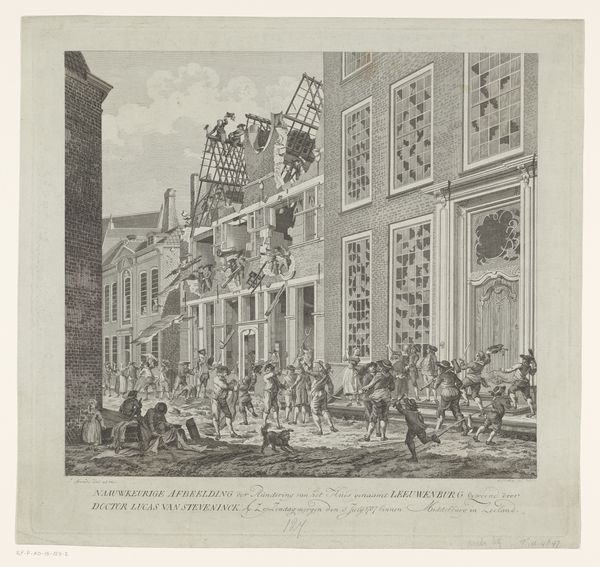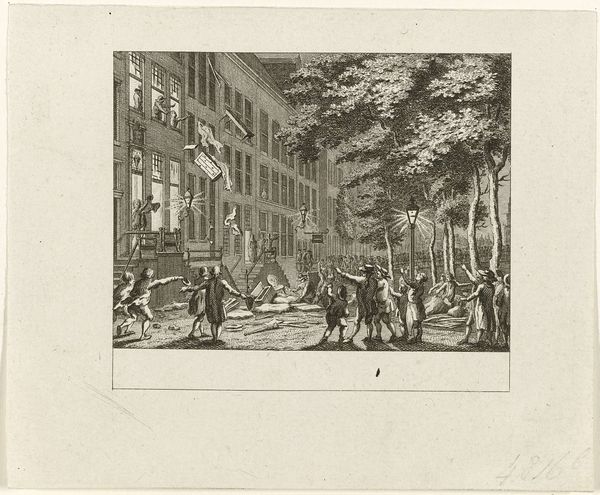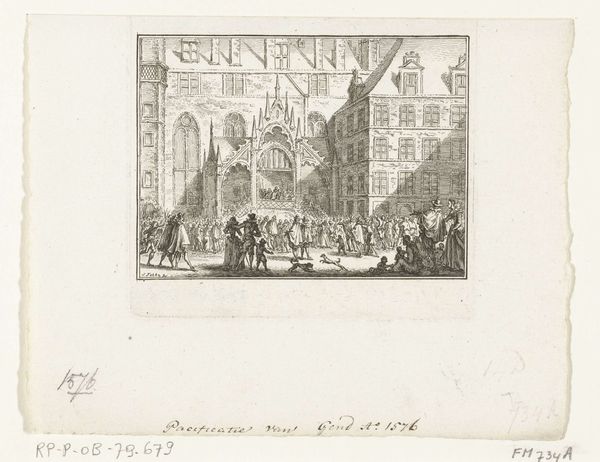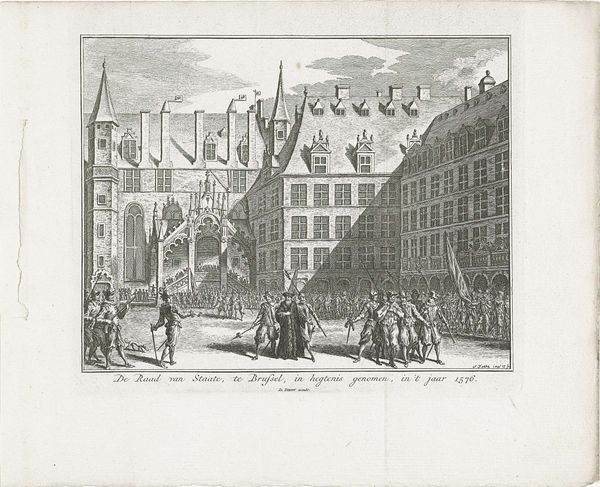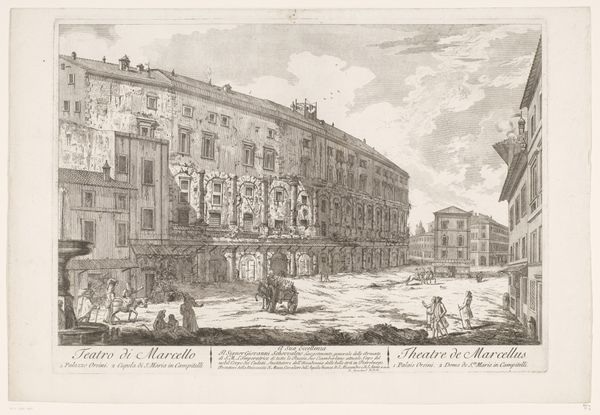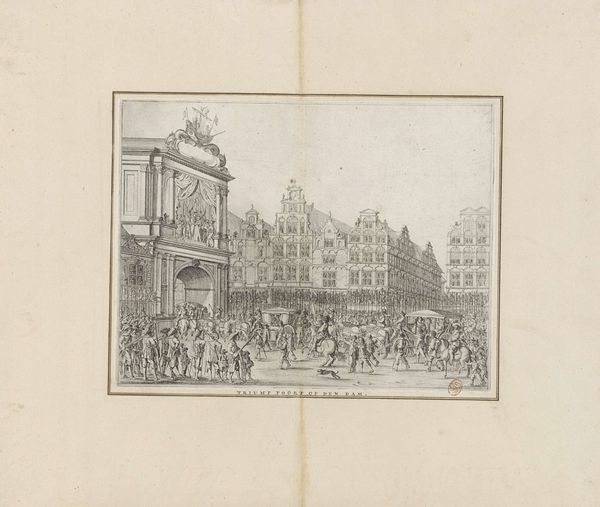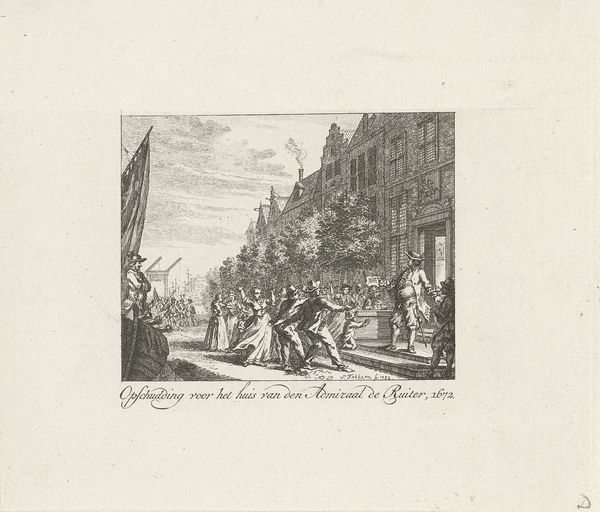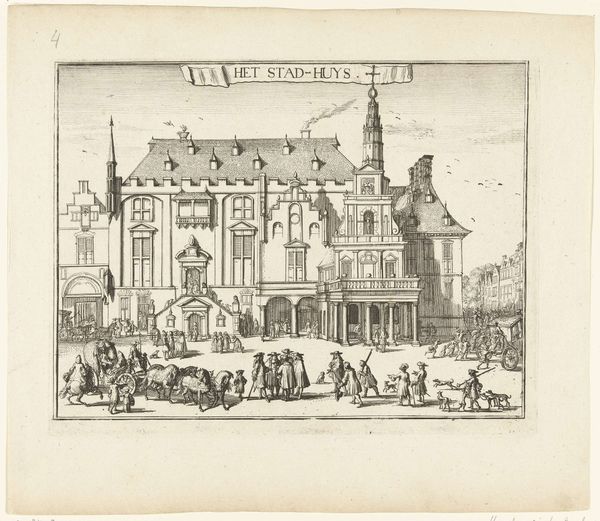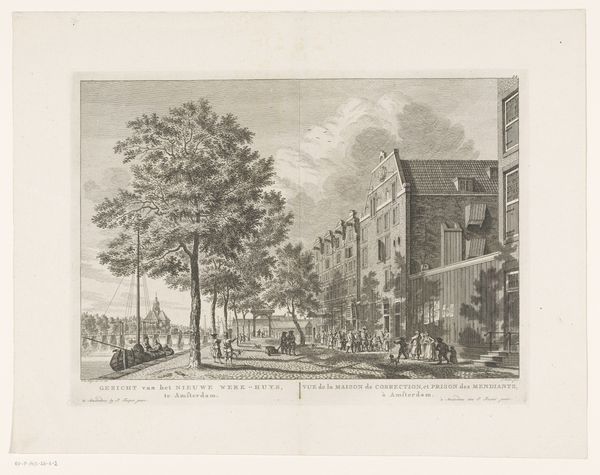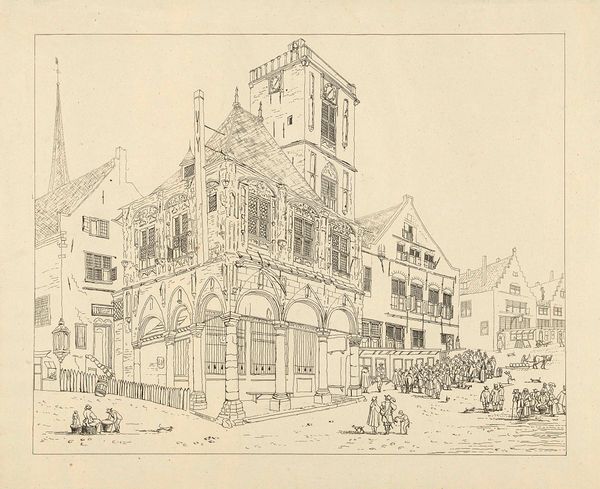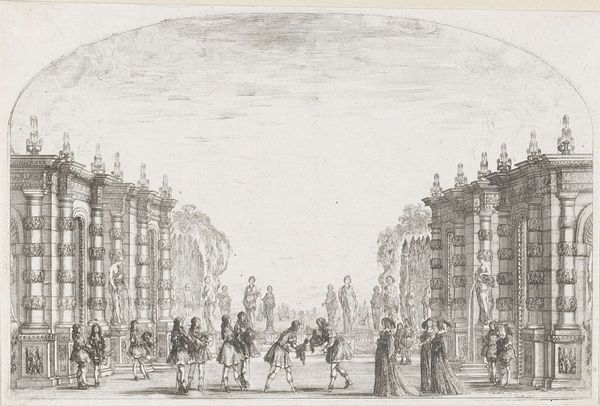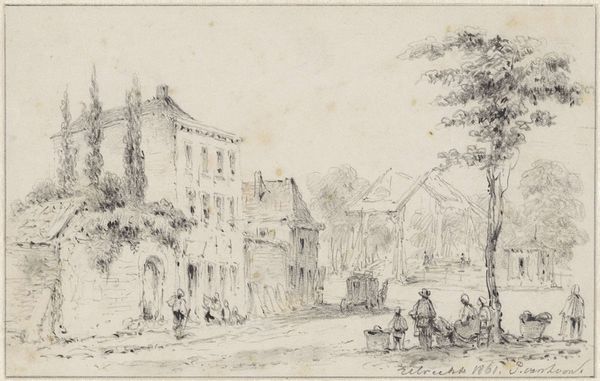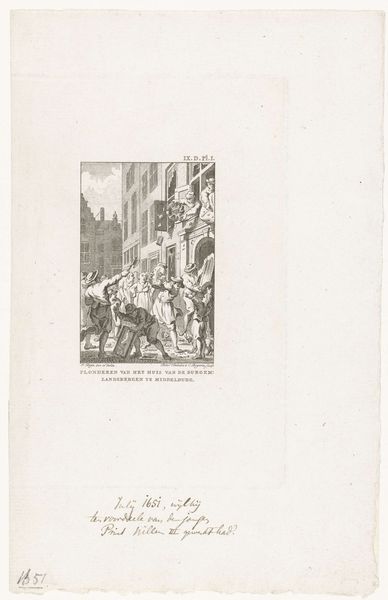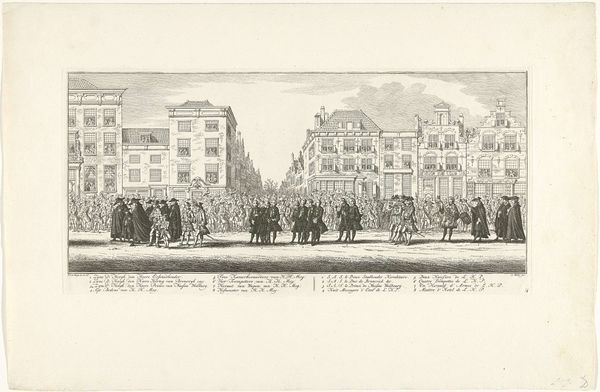
print, etching
#
neoclacissism
# print
#
etching
#
old engraving style
#
etching
#
cityscape
#
history-painting
Dimensions: height 410 mm, width 425 mm
Copyright: Rijks Museum: Open Domain
Mathias de Sallieth created this print, "Plundering van het huis van Lucas van Steveninck," in 1787 using etching. It captures a moment of intense social upheaval. The scene depicts the ransacking of Lucas van Steveninck’s home. In the Netherlands at this time, rising tensions between the Patriots, who sought democratic reforms, and the Orangists, who supported the Stadtholder, erupted into violence. Van Steveninck was a known Orangist. The print, therefore, isn’t just a depiction of destruction, but a political statement about the social and political conflicts tearing apart Dutch society. De Sallieth uses the visual language of chaos to convey the breakdown of social order. This image raises questions about the role of art in documenting and commenting on political turmoil. It underlines how artists can capture the raw energy of social movements. To fully understand the print, historical research into the Dutch Patriot movement, the biographies of key figures like Van Steveninck, and the role of prints in disseminating political messages is essential. It is through these resources that we can understand the contingent nature of art.
Comments
No comments
Be the first to comment and join the conversation on the ultimate creative platform.
